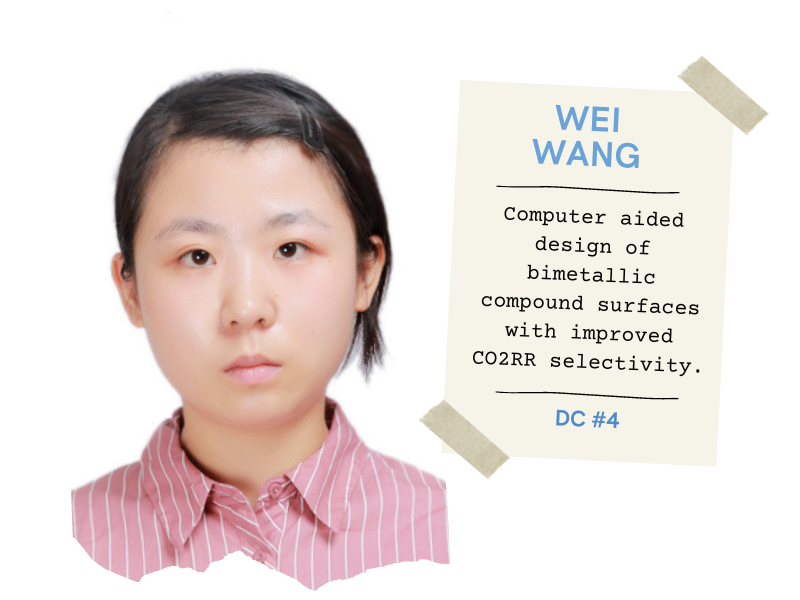
Born in Zunyi, China in 1998. She completed her undergraduate studies inChemistry at the Beijing Institute of Technology (2015-2019), where her research focused on thetransformation mechanisms of atmospheric pollutants. Wei Wang then went on to obtain hermaster’s degree with specialization in Theoretical and Computational Chemistry at XiamenUniversity (2019-2022). There, she applied the energy decomposition analysis method and valencebond theory to understand the interactions in inclusion complexes and chemical reactions,respectively. And she joined the CarbonSilicon AI Technology Development Co., Ltd as an AlgorithmEngineering Intern

Computer aided design of bimetallic compound surfaces with improved CO2RR selectivity.
Project objectives: This PhD program aims at using state of the art ab initio simulations to predict the structure and reactivity of bimetallic Cu/M surfaces towards CO2RR. Reaction energy path leading to different value added products will be calculated and catalyst selectivity addressed. Comparison of different bimetallic systems at different stoichiometry will allow identifying the best performing catalysts.
Working context: DC#4 will be hosted at the Politecnico of Torino (Italy) and will be enrolled in the PhD school of the same institute, supervised by Prof. G. Cicero. Part of the activity will be carried on during secondment periods at the University of Iceland to learn performing CO2RR kinetic simulations, at TCD to be trained on machine learning and at APRIA to be trained in engineering simulations of CO2RR process design.
Expected outcome:
- Determine the low energy surfaces of bimetallic Cu/M compounds
- Calculate the reaction energy path for CO2RR on the low energy surfaces.
- Correlation between the stoichiometry of the Cu/M bimetallic compounds and their selectivity towards specific products.

